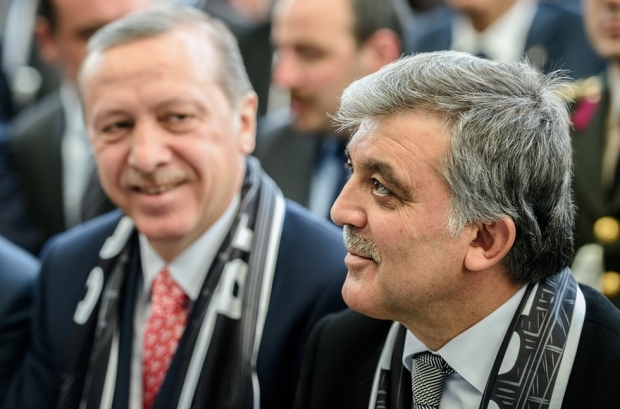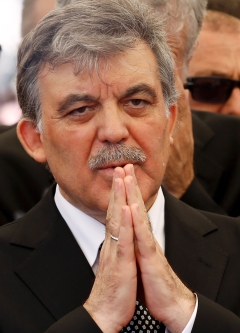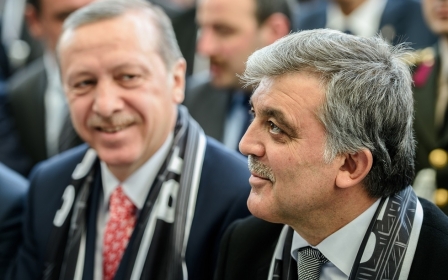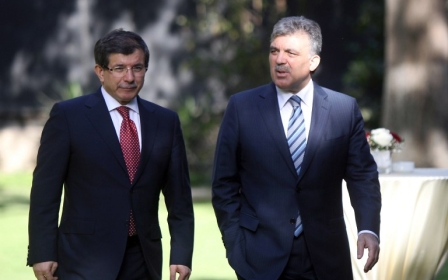Could Abdullah Gul be the unexpected saviour of Turkey's opposition?
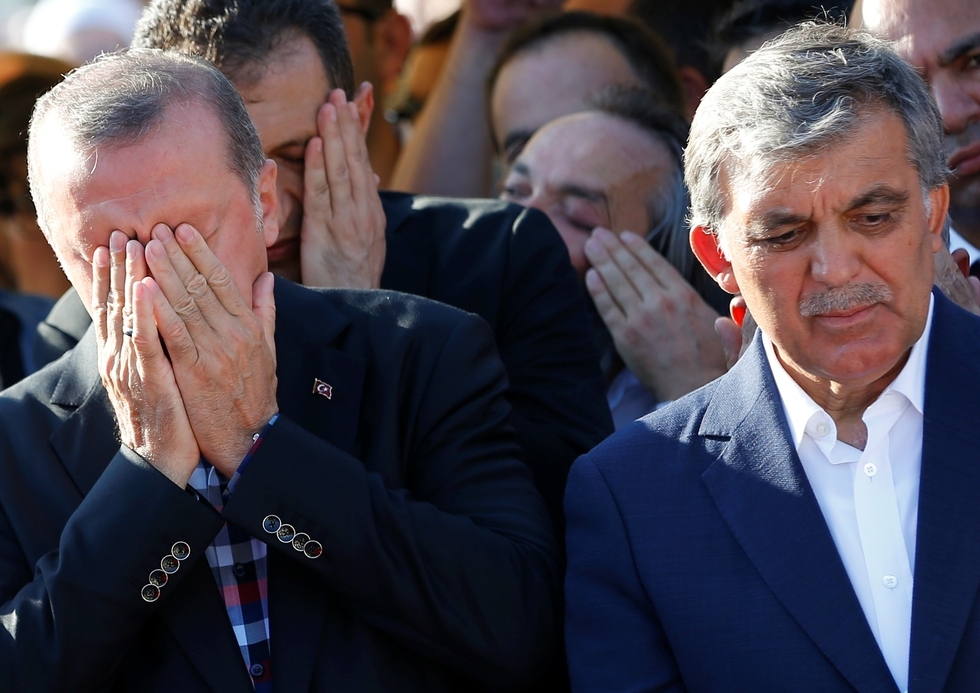
In the last days of 2017, a new state of emergency decree, providing immunity to civilians who took part in suppressing the July 2016 coup attempt against the Turkish government, triggered an unlikely war of words between Turkey's President Recep Tayyip Erdogan and his reticent yet influential predecessor, Abdullah Gul.
Declaration of war?
In a tweet on 25 December, Gul said he favoured a revision of the phrasing of the contentious decree in order to avoid possible problems stemming from the ambiguity of the law's content.
While the tweet was carefully worded and characteristically diplomatic, it was confrontational enough to ignite Erdogan to deliver a strong rebuke.
"Those who did not speak, react or act when Turkey and the Muslim world were burning, when humanity was bitterly groaning, suddenly show up and talk on all issues," Erdogan roared at a rally in the north-western Anatolian province of Duzce on New Year's Eve.
"What gives! What's the reason for this sudden reaction, troublemaking?"
For those who follow Turkish politics closely, tensions between Erdogan and Gul were apparent for quite a long time, yet this open declaration of war between the two still came as a surprise.
Gul co-founded the ruling Justice and Development Party (AKP) alongside Erdogan, Bulent Arinc and Abdullatif Sener; and served as Turkey's president between 2007-14 while his erstwhile ally was prime minister.
Gul issued some critical but cautious statements against Erdogan's practices, but never went far enough to incite a strong reaction from the president - until now
They were known to have differences of opinion on several major issues throughout their political careers (for example there were reports on a disagreement between Gul and Erdogan about the handling of the Gezi Protests in 2013, with Gul not wanting to escalate the situation), but the cracks in their partnership did not become apparent to the public until 2014.
That year, when Gul completed his tenure as president, Erdogan did not pave the way for him to return to the role of prime minister and practically pushed him off the political stage. Gul responded by not renewing his membership to the AKP and refusing to attend social functions alongside Erdogan.
Since then, Gul issued some critical but cautious statements against Erdogan's practices, but never went far enough to incite a strong reaction from the president - until now.
The recent unexpected public spat between the two was particularly shocking since Gul is known as a cautious political player - someone who does not cause controversy for the sake of controversy or take uncalculated risks.
Therefore, his recent stance against Erdogan raised hopes among the Turkish opposition that the former president could join them and even run against his old friend in next year's presidential election.
This prospect excited Erdogan's opponents in Turkey for several reasons. First of all, there is a wide range of people in Turkey who could, under the right circumstances, vote for Gul - from centre-right voters unhappy with the direction the party took under Erdogan to social democrats, liberals and Kurds.
The best in 'a bad bunch'
It is not that these people are staunch supporters of Gul, as many in the highly fractured Turkish opposition - especially the ones who did not vote for AKP or Erdogan in at least a decade - still clearly remember his time as Erdogan's right-hand man.
Yet, in the absence of an opposition candidate who has the ability to join different factions of Turkish society against Erdogan, they believe Gul is "the best of a bad bunch".
For them, Gul is a respectable foe - someone who would play the game of politics according to the rules. For them, he is George W Bush to Erdogan's Trump (Bush's approval ratings skyrocketed following Donald Trump's eventful first year in office, thanks to grief-ridden Democrats and Independents).
For now, it looks like Gul is simply waiting and assessing whether Erdogan lost enough political capital over the years and became vulnerable enough to lose an election
They may not agree with what Gul stands for, but, in the absence of a more viable alternative, can vote for him and not lose much sleep over it.
Erdogan's supporters seem to be aware of the threat Gul may potentially pose for the current president, as they already started voicing their discontent about Gul's newly found sense of duty to oppose the government's controversial practices.
A pawn for the opposition?
While some pro-Erdogan analysts focused on Gul's perceived "disloyalty" to the man who "singlehandedly made his political career possible", others argued he that he is nothing more than a pawn for the opposition.
In a 5 January column titled "Gul has no chance", pro-government daily Sabah's columnist, Engin Ardic, claimed that the Turkish opposition is desperately - albeit unsuccessfully - trying to transform Gul into a Turkish "Emmanuel Macron".
He added that Gul's candidacy could achieve nothing other than delaying Erdogan's inevitable victory in the second round of the presidential election, allowing the opposition to claim a meaningless victory in the first round.
Yeni Akit columnist Latif Erdogan, who was one of the most prominent allies of Fethullah Gulen for decades prior to the coup attempt and has since moved closer to the Turkish government, defined Gul's alleged presidential bid as "political suicide".
In a 30 December op-ed, he said: "[Gul] had already lost a lot of credibility as a result of what he said during the Gezi Park incident, now with his latest statement [on the presidential decree] he buried his political future completely."
Top cadres of Turkey's main opposition party, CHP, also seem to be unhappy about Gul's return to the political arena. CHP leader Kemal Kilicdaroglu already said that he may consider running against Erdogan in 2019, and AKP, understandably, does not want Gul to appear as a strong new contender in a race that is already rigged heavily against their leader.
When asked about the rumours about Gul's candidacy, CHP spokesperson Bulent Tezcan said they believe the former president spoke against Erdogan's controversial decree simply out of "a sense of responsibility".
"[AKP is] trying to discredit Gul's criticism about the decree by implying that he is acting out because he wants to run for president," he said. "We are not going to be part of this argument."
An acceptable candidate
For his part, Abdullah Gul has not yet confirmed his intention to run for president, but he has also refrained from outright denying the rumours. Gul is known for carefully calculating his every move and he is unlikely to challenge Erdogan in a race as important as this one before making sure that he has a good chance of winning.
For now, it looks like he is simply waiting and assessing whether Erdogan lost enough political capital over the years and became vulnerable enough to lose an election.
Of course, if and when Gul decides to run against his former friend, he would still be facing the possibility of an embarrassing defeat, akin to the one experienced by Ekmeleddin Ihsanoglu, the former secretary of the Organisation of Islamic Cooperation, who ran as the umbrella opposition candidate in the 2014 presidential elections.
Back then, the majority of the Turkish opposition - including the CHP - pinned all its hopes on this respected, conservative and bipartisan candidate. But he failed to counter the Turkish masses' loyalty to Erdogan and ended up delivering the title of "Turkey's first elected president" to the then prime minister on a gold plate.
Just like Ihsanoglu, Gul is not Erdogan. This seems to be the only reason why he is even considered as an acceptable candidate for the presidency by some opposition forces, but it may also end up being the biggest obstacle in front of his (rumoured) presidential ambitions.
Only time will tell whether he will dare to run against a former friend who has not lost a single election in over a decade, and try to become the unexpected saviour of the Turkish opposition.
- Birce Bora is a London-based Turkish journalist and researcher. She holds a PhD in Journalism from City, University of London. Her thesis examined the representation of Turkey in the British Print Media between 2007-13.
The views expressed in this article belong to the author and do not necessarily reflect the editorial policy of Middle East Eye.
Photo: Turkish President Recep Tayyip Erdogan (L) and his predecessor Abdullah Gul pray during a funeral service for a victim of the thwarted coup in Istanbul, Turkey, July 17, 2016 (REUTERS)
New MEE newsletter: Jerusalem Dispatch
Sign up to get the latest insights and analysis on Israel-Palestine, alongside Turkey Unpacked and other MEE newsletters
Middle East Eye delivers independent and unrivalled coverage and analysis of the Middle East, North Africa and beyond. To learn more about republishing this content and the associated fees, please fill out this form. More about MEE can be found here.



